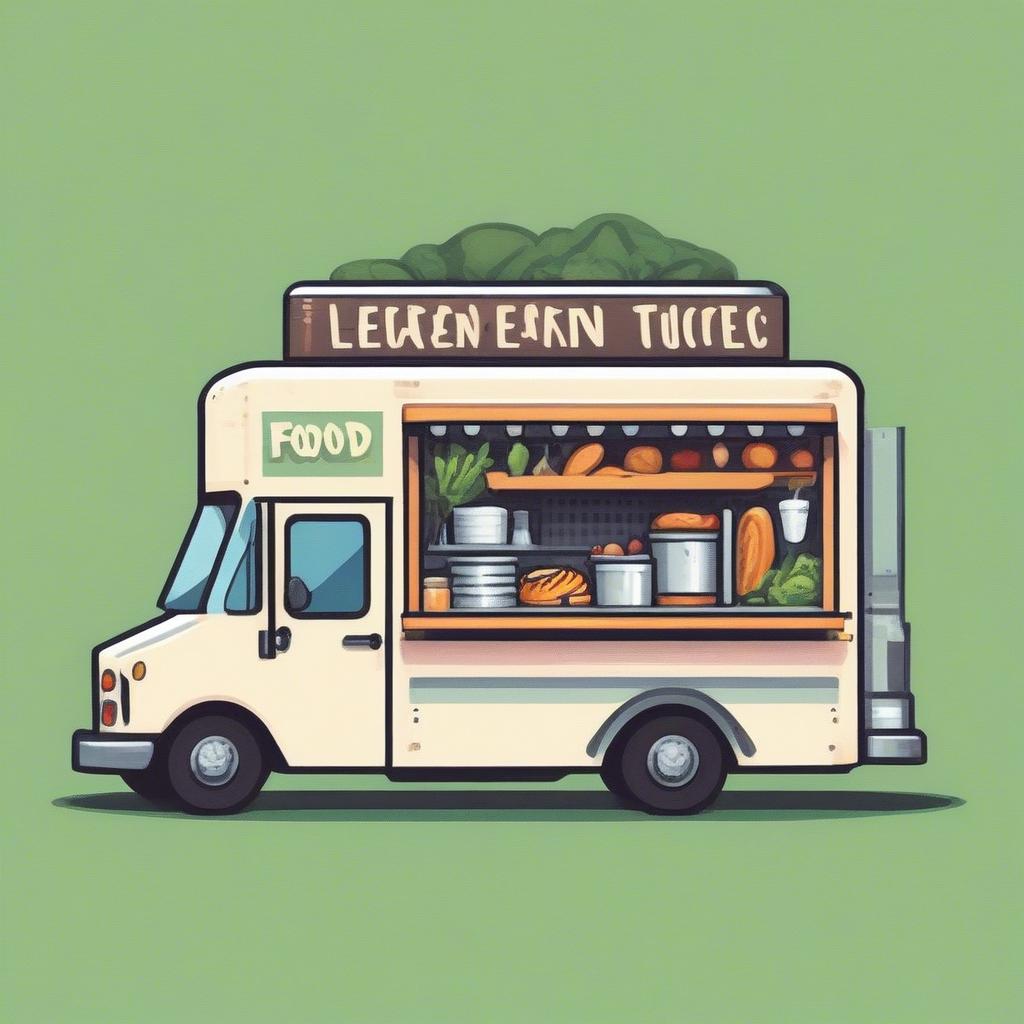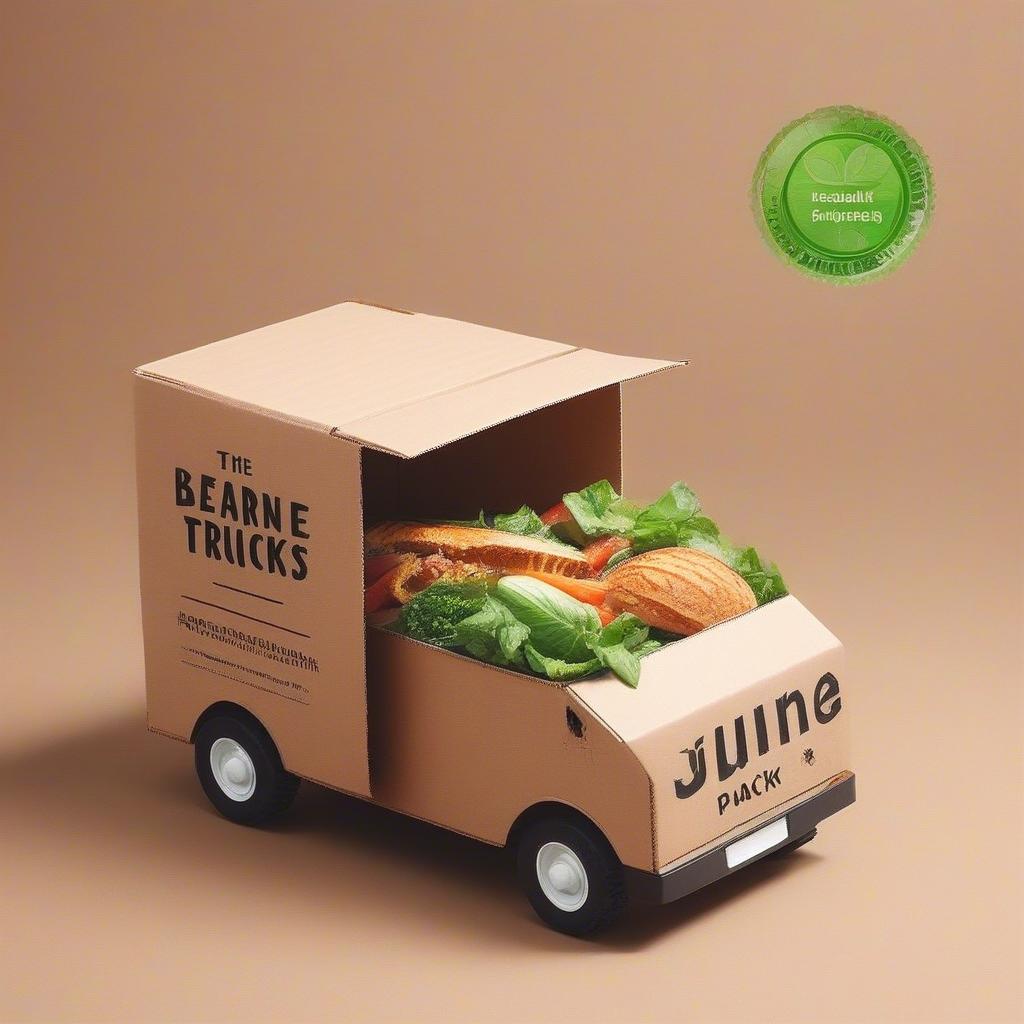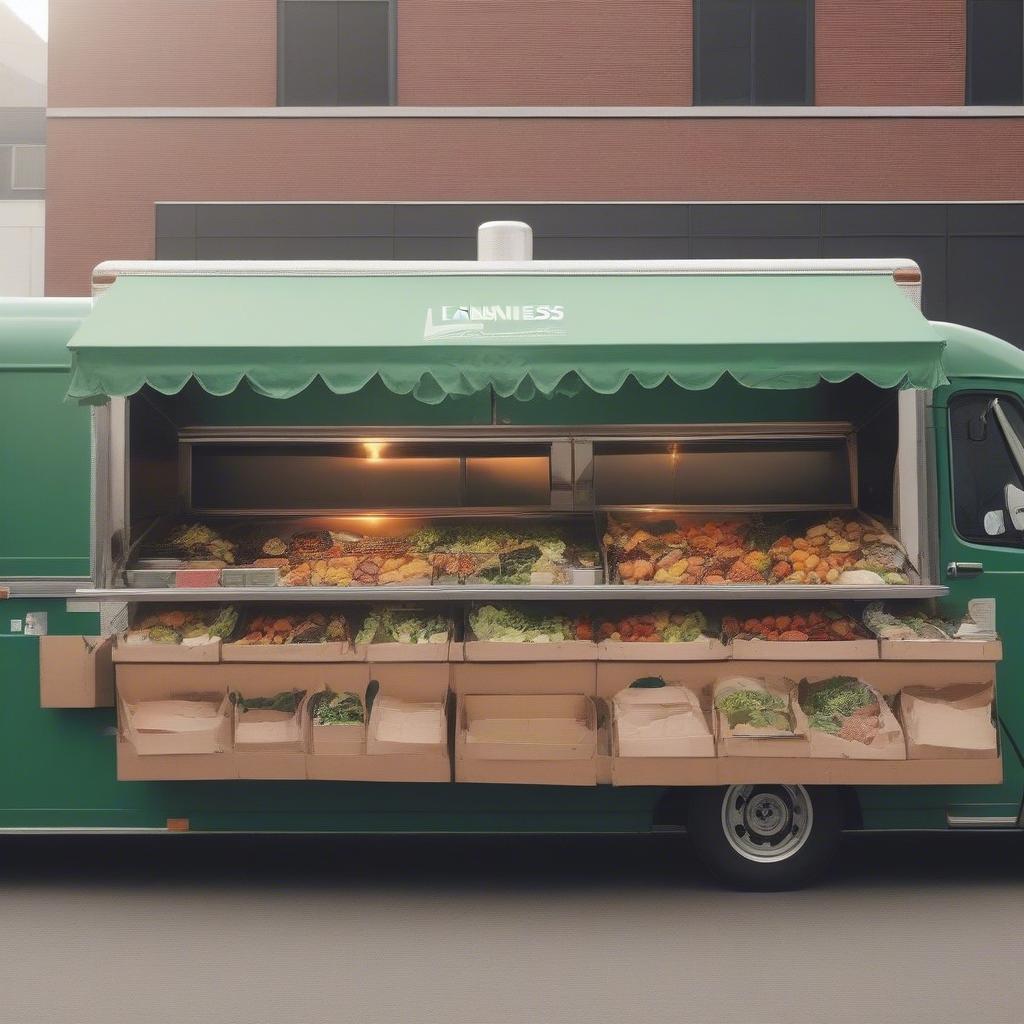
Food Truck Budget Planning: Avoiding Costly Mistakes
The Road to Success: Understanding the Importance of Food Truck Budget Planning
Opening a food truck is a dream for many, a tantalizing vision of culinary freedom and entrepreneurial spirit. But like any business venture, the path to success is paved with meticulous planning, and at the heart of that planning lies a robust and realistic budget planning. Without it, your dream can quickly turn into a financial nightmare, leaving you stranded on the side of the road with flat tires. Ignoring the essential steps in budget planning for your food truck is a recipe for disaster.
Why is Budget Planning So Crucial for a Food Truck?
Let’s face it: food trucks, while seemingly simpler than traditional brick-and-mortar restaurants, are still complex businesses with numerous moving parts. A well-crafted budget planning helps you:
- Control Costs: Keep a tight rein on your expenses, from initial setup to daily operations. Uncontrolled costs can quickly devour your profits. This is where sound cost management comes in to make sure every penny is spent wisely.
- Maximize Profitability: Understanding where your money goes allows you to identify areas where you can cut costs or increase revenue, leading to higher profits. Good cost management translates to a healthier bottom line.
- Secure Funding: Whether you’re seeking a loan or investors, a detailed budget planning is crucial to demonstrate the viability of your business and your ability to manage finances responsibly. Lenders want to see you have a handle on your cost management.
- Avoid Debt Traps: Lack of proper budget planning can lead to overspending, forcing you into debt that can be incredibly difficult to climb out of. Avoiding that is the point of good budget planning.
- Plan for the Unexpected: Life throws curveballs. A solid budget planning includes contingency funds for unforeseen expenses, like equipment repairs or sudden dips in business.
- Make Informed Decisions: From menu pricing to staffing, your budget planning provides the financial data necessary to make sound strategic decisions that positively impact the business. With proper cost management, you are empowered to decide based on facts.
Ignoring the Basics: Common Costly Mistakes in Food Truck Budgeting
Many first-time food truck owners fall into common traps that derail their financial well-being. These mistakes are usually preventable with a solid budget planning approach. Let’s explore a few:
- Underestimating Startup Costs: Many aspiring owners focus on the truck itself but fail to account for permits, licenses, equipment (beyond just the basic), initial inventory, insurance, marketing, and countless other expenses that add up quickly. This inadequate budget planning is a huge pitfall.
- Poor Inventory Management: Buying too much perishable stock that goes bad or running out of essential items can lead to significant losses. This shows a weakness in cost management.
- Ignoring Hidden Costs: Fuel, maintenance, parking fees, disposal costs – these seemingly small expenses can snowball into significant drains on your finances if not properly accounted for in your budget planning.
- Failing to Track Expenses: If you’re not meticulously tracking every penny coming in and going out, you’re flying blind. This makes proper cost management impossible.
- Pricing Errors: Incorrectly pricing your menu items, whether too low or too high, can drastically impact your profits. Your budget planning needs to factor in all costs and a healthy profit margin.
- Lack of a Contingency Fund: Not setting aside money for unexpected repairs or slow periods is a recipe for disaster. This is a crucial part of the budget planning process.
Pre-Launch Budgeting: Laying the Foundation for Success
The journey to a profitable food truck starts well before you open for business. This pre-launch phase is where you’ll lay the foundation for your financial well-being through diligent budget planning.
Step-by-Step Guide to Pre-Launch Budget Planning
-
Research Your Market & Concept: This crucial step influences your entire budget planning. Understand your target audience, your chosen location, and your menu concept. Will you need a very specialized setup? This affects initial costs.
-
Calculate Startup Costs: These are the one-time expenses you’ll incur before opening. Be thorough and don’t underestimate anything. Here’s a breakdown of common startup costs that should be included in your budget planning:
- The Food Truck Itself: Purchasing a new or used truck. Also, factor in customization costs.
- Permits and Licenses: Vary by location, research local and state requirements.
- Equipment: Ovens, fryers, refrigerators, prep tables, utensils, POS system. Make a detailed list of everything you need for your specific menu.
- Initial Inventory: The food and supplies needed for your first few days. Plan ahead and minimize waste during this crucial time.
- Insurance: Liability, vehicle, and worker’s compensation insurance. Essential for protecting your business.
- Marketing: Website, signage, social media advertising, grand opening promotions.
- Miscellaneous: Uniforms, packaging, cleaning supplies, initial maintenance fund.
-
Estimate Ongoing Operating Costs: These are the recurring expenses you’ll have once you’re up and running. Careful budget planning here can make or break your business.
- Food Costs: This is one of the biggest expenses. Estimate based on your planned menu and ingredient costs.
- Fuel: Essential for getting to events and for powering your truck.
- Utilities: Electricity, propane, or gas for cooking equipment.
- Maintenance & Repairs: Budget for regular upkeep and potential breakdowns.
- Payroll: If you have employees, this will be a substantial expense.
- Parking Fees: Factor this into your location choices and costs.
- Waste Disposal: Know your local regulations and fees.
- Marketing & Advertising: Ongoing promotion efforts.
- Miscellaneous Expenses: Unexpected repairs, price increases on supplies, etc.
-
Develop a Sales Forecast: Estimate your projected revenue based on factors like location, hours of operation, menu pricing, and expected customer volume. Use realistic assumptions. This crucial step informs your budget planning.
-
Create a Detailed Spreadsheet: Using a spreadsheet program like Excel or Google Sheets, meticulously record all of your startup and operating costs, as well as your projected sales. This will serve as your foundational budget planning tool.
Template: Pre-Launch Budgeting Spreadsheet
Here’s a simplified example of what your spreadsheet could include:
| Category | Item | Estimated Cost | Notes |
|---|---|---|---|
| Startup Costs | Truck Purchase | $X,XXX | New or used, with customization? |
| Permits & Licenses | $XXX | Local and State | |
| Equipment | $Y,YYY | Detailed list: ovens, fryers, etc. | |
| Initial Inventory | $ZZZ | Food and supplies for first week | |
| Insurance | $AAA | Liability, vehicle, worker’s comp | |
| Marketing | $BBB | Website, signage, promotions | |
| Miscellaneous | $CCC | Uniforms, initial maintenance fund, etc. | |
| Total Startup | $SUM | ||
| Operating Costs | Food | $XXX/month | Based on menu and ingredients |
| Fuel | $YYY/month | ||
| Utilities | $ZZZ/month | Gas, propane, electricity | |
| Maintenance & Repairs | $AAA/month | ||
| Payroll | $BBB/month | ||
| Parking Fees | $CCC/month | ||
| Waste Disposal | $DDD/month | ||
| Marketing & Advertising | $EEE/month | ||
| Miscellaneous | $FFF/month | ||
| Total Operating | $SUM/month | ||
| Sales Forecast | Expected Daily Sales | $GGG/day | Based on location, menu prices, etc. |
| Projected Monthly Revenue | $HHH/month | Daily sales multiplied by working days |
(Note: This is a simplified template. Your actual spreadsheet will need to be more detailed.)
Ongoing Operations Budget: Maintaining Financial Health
Once your food truck is up and running, your budget planning shifts to managing day-to-day operations and ensuring the long-term financial health of your business. This is where effective cost management is vital.
Tracking Expenses and Monitoring Performance
- Track Everything: Use accounting software or a dedicated spreadsheet to record every transaction, from ingredient purchases to fuel expenses. Detailed tracking is the key to accurate cost management.
- Categorize Your Expenses: This will make it easier to analyze your spending. Examples: food, fuel, utilities, labor, marketing. Proper categorization supports better budget planning.
- Regularly Review Financial Statements: Monthly profit and loss statements, cash flow statements, and balance sheets provide valuable insights into your financial performance.
- Compare Actual vs. Budgeted: Identify areas where you’re over or under budget and take corrective action. Good cost management is proactive, not reactive.
- Key Performance Indicators (KPIs): Monitor key metrics like food costs as a percentage of revenue, labor costs as a percentage of revenue, and average transaction value.
Strategies for Effective Cost Management
- Negotiate with Suppliers: Don’t be afraid to shop around and negotiate prices with your suppliers. Building strong relationships with suppliers can lead to better deals and consistent quality, which all contributes to smart budget planning.
- Reduce Food Waste: Implement strict inventory management practices, plan menus carefully, and utilize leftovers creatively to minimize spoilage and waste. Waste is money down the drain, therefore, good inventory management is good cost management.
- Optimize Menu: Regularly analyze your menu’s performance. Identify low-profit items and either remove them or modify them. This shows good cost management and menu design.
- Control Labor Costs: Schedule employees efficiently and consider cross-training employees to handle multiple tasks. Overstaffing costs too much, and understaffing hurts service quality, therefore, proper staffing is important for cost management.
- Save on Utilities: Be mindful of energy consumption. Turn off equipment when not in use. Make sure you understand any hidden electrical costs to help you optimize your budget planning.
- Minimize Fuel Consumption: Plan routes efficiently, combine errands, and maintain your truck to ensure optimal fuel efficiency.
- Regular Maintenance: Preventative maintenance on your truck and equipment can help you avoid costly repairs down the line. This is a core part of cost management.
- Marketing: Choose cost-effective marketing strategies that target your ideal customers. For example, social media and local events can be great ways to reach your audience without breaking the bank, and fits into a good budget planning.
Example: Real-World Cost Management Scenario
Let’s say your monthly budget for food is $5,000, but your actual expenses are $5,800. After a review, you discover that a significant portion of the overspending is due to food waste from buying too much of a particular ingredient that does not sell as well. As a result of your budget planning and tracking, you decide to change your ordering system, and also create a new special using the excess ingredient, and therefore reduce waste, saving money and increasing profit. This type of proactive cost management is a sign of a healthy and well-run food truck.
Financial Forecasting and Planning for Growth
Budget planning isn’t just about tracking past expenses; it’s also about looking ahead and planning for the future. This includes forecasting sales, projecting profits, and strategizing for growth. This is essential in a solid budget planning system.
Long-Term Budgeting
- Projected Income: Create realistic revenue projections for the next year, two years, and five years. Be sure to consider seasonal variations, market trends, and your marketing plan.
- Profit Targets: Establish specific profit targets for each period. This keeps you on track and focused on business growth.
- Growth Plans: Outline your plans for expansion, which could include adding a second truck, expanding your menu, or moving to a new location. It must be considered that all these options will impact your budget planning.
Financial Planning Tips
- Set Aside Savings: Regularly allocate a portion of your profits to a savings account for future growth or unforeseen expenses. This is your ‘just-in-case’ pot, and good budget planning always considers this.
- Explore Financing Options: If you need funding for expansion, research loan options or investment opportunities.
- Monitor Market Trends: Stay informed about industry trends, competitor activities, and customer preferences. Adapt your menu and budget planning accordingly.
- Seek Professional Help: Consider consulting with an accountant or financial advisor to help you manage your finances and plan for long-term growth. They can be useful to give outside perspective into your budget planning.
Learn Business: Your Partner in Financial Success
At Learn Business, we understand the challenges that food truck owners face. That’s why we offer a range of resources, including business guidance, templates, and practical advice, to help you streamline your operations and improve your financial health. Our mission is to empower businesses by giving them the tools they need to succeed and master budget planning.
How Learn Business Supports Food Trucks
- Budget Templates: We provide ready-to-use spreadsheet templates designed specifically for food trucks, including pre-launch budgets, operating expense trackers, and sales forecasting tools. These templates can save you time and effort while ensuring you do your budget planning properly.
- Financial Planning Guides: Access our comprehensive guides on budget planning, cost management, and financial forecasting. We simplify complex financial topics to make them easy to understand and apply to your business.
- Expert Articles: Our team of experienced professionals creates content that is packed with practical tips and strategies for improving your cost management and growing your business.
- Customized Support: We offer personalized guidance to help you address specific challenges and opportunities related to your food truck.
Learn Business is more than just a resource; we’re your partner in success. We’re dedicated to providing the knowledge and tools you need to build a thriving food truck business, and that always starts with a solid foundation of budget planning and proper cost management.
Conclusion: Taking Control of Your Food Truck’s Financial Destiny
Running a successful food truck requires more than just great recipes; it demands a strong understanding of budget planning and effective cost management. By avoiding common mistakes, meticulously planning your finances, and utilizing the resources available to you, like Learn Business, you can take control of your business’s financial destiny. Don’t let poor budget planning derail your dream. Start today and build a financially stable and prosperous food truck that you can be proud of. Remember, good budget planning and cost management are the keys to long-term success.



Leave a Reply